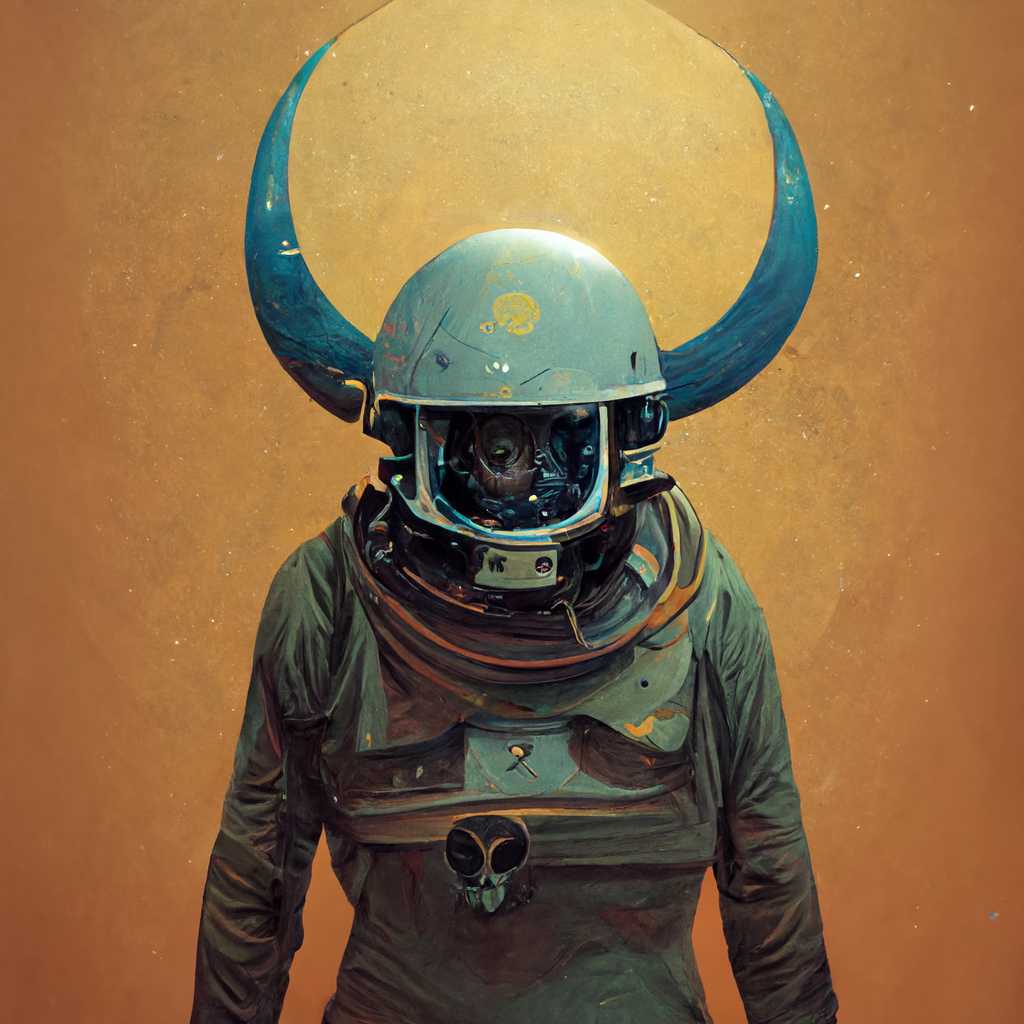BEELZEBUB’S TALES (9)
By:
April 16, 2023

Beelzebub’s Tales to His Grandson (dictated 1924–1927, and thus a work of Radium Age proto-sf, although it wouldn’t see publication until after the author’s death in 1949) is the first section of a never-completed magnum opus to be titled All and Everything. Gurdjieff would later explain that through this work he intended “to destroy, mercilessly, without any compromises whatsoever, in the mentation and feelings of the reader, the beliefs and views, by centuries rooted in him, about everything existing in the world.” HiLoBooks is pleased to serialize a selected excerpt from Beelzebub’s Tales here at HILOBROW.
ALL INSTALLMENTS: 1 | 2 | 3 | 4 | 5 | 6 | 7 | 8 | 9 | 10.
BOOK I
CHAPTER VII: Becoming aware of genuine being-duty
When the captain had gone, Beelzebub glanced at his grandson and, noticing his unusual state, asked with concern and a shade of anxiety:
“What is the matter, my dear boy? What are you thinking about so deeply?”
Looking up at his grandfather with eyes full of sorrow, Hassein said thoughtfully:
“I don’t know what is the matter with me, dear Grandfather, but your talk with the captain has brought me to some exceedingly melancholy thoughts. Things I never thought of before are now a-thinking in me.
“Thanks to your talk, it has gradually become clear to my consciousness that in the Universe of our Endlessness things have not always been as I now see and understand them.
“Formerly I should never have allowed myself to imagine, even if the thought had come to me by association, that this ship we are flying on, for instance, has not always been just as it is now.
“Only now have I come to understand clearly that everything we have and use today, all the contemporary amenities and everything necessary for our comfort and welfare, did not always exist, nor did they make their appearance so easily.
“It seems that in the past certain beings must have labored hard and suffered very much for all this, and endured a great deal that perhaps they could have spared themselves. They labored and suffered solely that we might have these advantages today and use them for our welfare.
“And all this, consciously or unconsciously, they did for us — beings quite unknown and entirely indifferent to them.
“And now not only do we not thank them, but we do not even know anything about them, and take it all as a matter of course, and neither ponder this question nor trouble ourselves in the slightest about it.
“I, for instance, have already existed so many years in the Universe, yet the thought has never entered my head that perhaps there was a time when everything I see and have did not exist, and that everything was not born with me like my nose.
“And so, my dear and kind Grandfather, since your conversation with the captain has gradually made me aware of all this with the whole of my presence, the need has arisen in me to make clear to my Reason why I personally have these advantages, and what obligations I am under on their account.
“It is just because of this that there now arises in me a ‘process of remorse.”
Having said this, Hassein bowed his head and became silent.
Looking at him affectionately, Beelzebub began to speak as follows:
“I advise you, my dear Hassein, not to put such questions to yourself yet. Be patient. Only when you reach the corresponding period of your existence for becoming aware of such essence-questions, and reflect actively upon them, will you understand what you must do in return.
“At your age, you are not yet obliged to pay for your existence.
“This present period of your life is not given you for paying for your existence, but for preparing yourself for the future — for the obligations becoming to a responsible three-brained being.
“So in the meantime, exist as you exist. Only do not forget one thing: at your age, it is indispensable that every day when the sun rises, while watching the reflection of its splendor, you bring about a contact between your consciousness and the various unconscious parts of your common presence. Trying to make this state last, think and convince the unconscious parts — as if they were conscious — that if they hinder your general functioning in the process of ordinary existence, then in the period of your responsible age they will not only be unable to enjoy the good that is proper to them, but also your whole presence, of which they are a part, will not be capable of becoming a good servant of our Common Endless Creator, and will thus be unable to pay honorably for your arising and existence.
“I repeat once more, dear boy, try in the meantime not to think of these questions: at your age it is still too early to think about them.
“Everything in its proper time!
“Now ask me whatever you wish, and I will tell you. As the captain has not yet returned, he must be occupied with his duties and will not be coming back for quite a while.”
RADIUM AGE PROTO-SF: “Radium Age” is Josh Glenn’s name for the nascent sf genre’s c. 1900–1935 era, a period which saw the discovery of radioactivity, i.e., the revelation that matter itself is constantly in movement — a fitting metaphor for the first decades of the 20th century, during which old scientific, religious, political, and social certainties were shattered. More info here.
SERIALIZED BY HILOBOOKS: James Parker’s Cocky the Fox | Annalee Newitz’s “The Great Oxygen Race” | Matthew Battles’s “Imago” | & many more original and reissued novels and stories.
